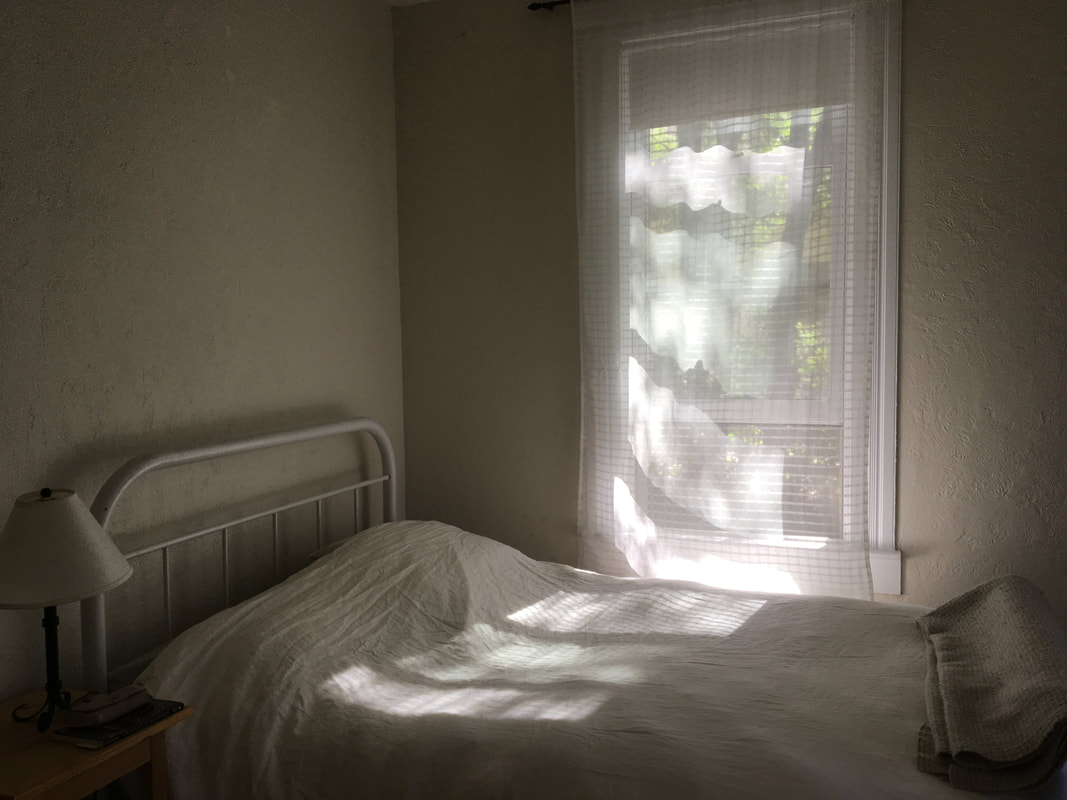|
In our old apartment building in New York, we had an elevator man. Sometimes it was George, but usually it was Eddie. Eddie would welcome us into the elevator as if it were his home, which it was in a way, then he’d close the elevator doors and the heavy metal gate, and up we’d go. One time when it was just the two of us in the elevator, Eddie asked me if I’d like to do the driving. Those were his words, “do the driving.” Of course I would! He demonstrated how to push the handle in one direction to power up, and in the other direction to slow down and stop. He assured me there was no way I could rocket us out into the air above Manhattan if I was too heavy on the handle, but I could easily zip past 3 and land halfway to 4 without the proper finesse.
Incredibly, I don’t remember doing the driving that day, and that lapse of memory could only be because it never happened. Probably Mrs. Sulzberger on 5 rang for the elevator at that moment, or old comma-shaped Mr. Fayles on 9. My guess is that Eddie promised me a driving lesson for another day, and dropped me off on 3 where I belonged. This same Eddie was the stuff of legends. Many an apocryphal tale was told about his daring antics, including the time my mother came home and found him at our piano, playing the Moonlight Sonata. George must have been on the elevator that afternoon, because Eddie surely wasn’t. And who would have guessed? The Moonlight Sonata! In fact, the strangest part of that story for me was not that Eddie was sitting at the piano in our apartment, but that he was playing Beethoven. Living with doormen and elevator men was the urban equivalent of having a watchdog, or a good neighbor who would look out for us and keep secrets for us as we got older and our friends, savory and unsavory alike, stayed over and snuck out early in the morning before our parents woke up. George, Boris, Eddie, they gave us advice. Eddie’s was often imperfect, but otherwise the concern of these men who were not kin, who could see us without the clouded lenses of blood relatives, and who were in many cases more available than our parents, especially our fathers—this was an essential part of learning to trust. New York was not a city known for its benevolence, though after 9/11 its heart was briefly on display. The New York I grew up in was tough, loud, combative. And for all its advertised allure, the Upper East Side had an underbelly as rough and dirty as any neighborhood. You could hear it when the bars closed and the tony clientele spilled onto the streets, shouting threats and obscenities. You could see it very early in the morning, before the doormen took to the sidewalks with their hoses and long-handled scrub brushes. You could watch the litter of fast-food containers tumbling down the avenues, or the condoms and lost gloves choking the gutters. When I was ten or twelve, walking home from school in broad daylight, a kid no bigger than a seven-year-old came out of a doorway and held a knife to my gut. I just looked at him and said, “What?” and he withdrew because really there was no answer to my question. Growing up with a good neighbor at the front door, a champion and a watchdog, a doorman, gave me a foothold in the world I do not take for granted. Through the tense days of the Cuban Missile Crisis, when Russia’s warheads were aimed at New York; through the protests, riots, assassinations and injustices of the ‘60s, something succeeded in creating a feeling of safety for me, a trust in who I was and how I would navigate the challenges presented by the decade in which I was coming of age. The world appeared more than ever a house of cards, a collapsing illusion, but something beyond the money in my pocket, my education and my whiteness, gave me the self-assurance to say to that kid on the street: What? It wasn’t just George and Boris and Eddie, but their alert and steady presence was instructive and essential at a time when air raid sirens sent us underground, when shop windows shattered, when brothers lost the lottery, went off to war and never returned. The funereal wailing of a decade did not diminish us. We had good neighbors. We had doormen. Here in Flagstaff, my house has three bedrooms lined up one-two-three like roomettes on a train. When I moved in a year ago, I chose the front bedroom, the one facing the street, though I wasn’t sure why. It has two windows, and I like windows. Was that the reason? Not quite. It was only recently I realized I wanted to sleep at the front of the house in order to guard the house. I wanted to join the ranks of that noble profession. I wanted to be my own doorman.
1 Comment
Carol
6/20/2021 04:38:54 am
Thank you for the essay, and for the excellent chicken! Carol
Reply
Leave a Reply. |
AboutA place to discuss writing or anything on your mind. All visitors are invited to join the conversation by commenting on posts, asking questions, and joining the newsletter below for even more opportunities to connect and converse! Archives
April 2023
Categories |


 RSS Feed
RSS Feed